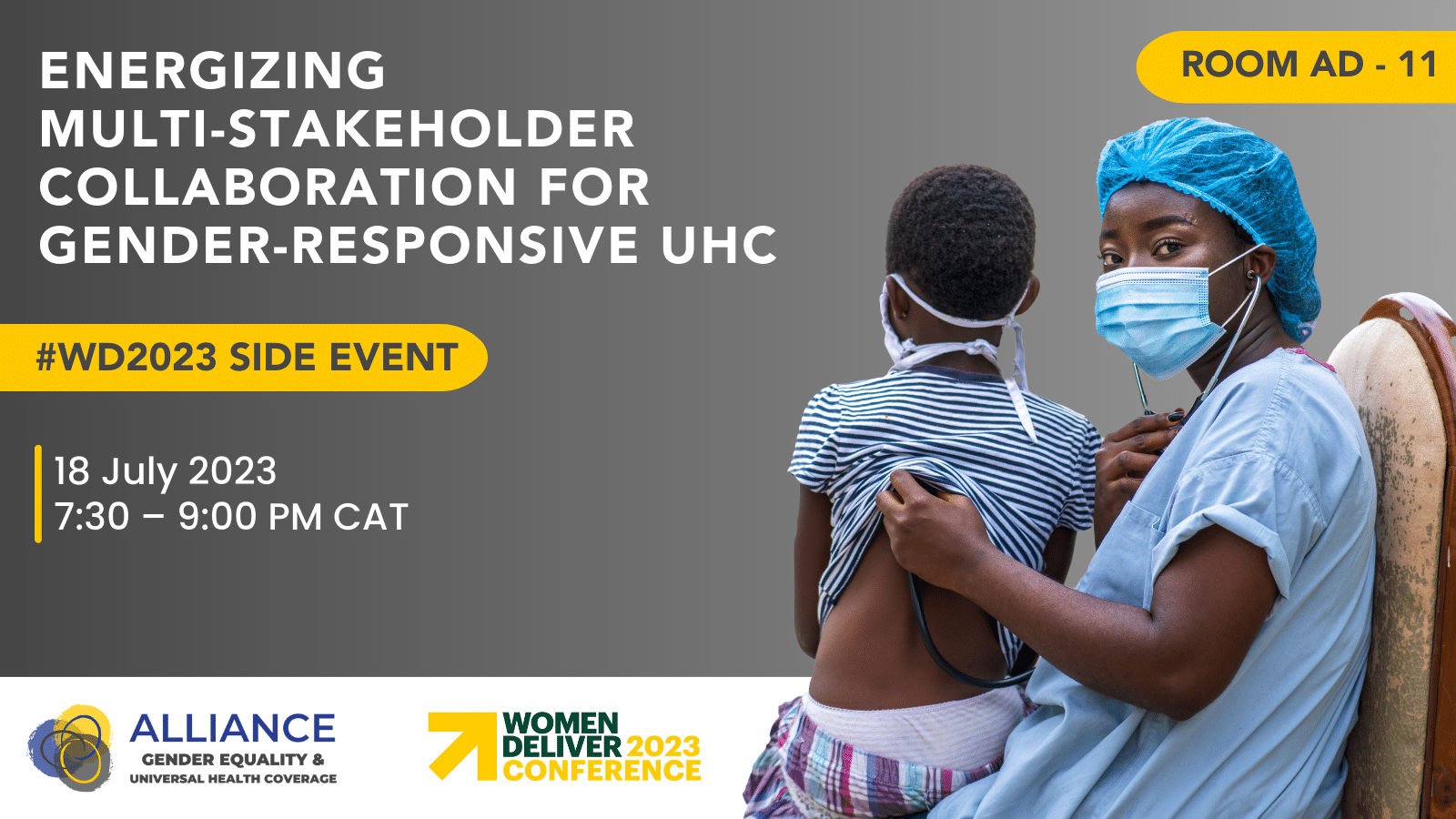
- This event has passed.
Energizing Multi-Stakeholder Collaboration for Gender-Responsive UHC
July 18, 2023 @ 7:30 pm - 9:00 pm

The Women Deliver 2023 Conference(WD2023) was a key moment on the road to the UN High-Level Meeting (HLM) on Universal Health Coverage (UHC) in September. The Alliance for Gender Equality and UHC facilitated a multi-stakeholder dialogue among decision-makers, Alliance members, and health workers, where we took stock of progress to date in HLM negotiations and aligned on the next steps to secure an outcome and ongoing implementation that advances sexual and reproductive health and rights and the rights of health workers. The dialogue also addressed the importance of partnership, including where power is held and how it can shift to support more impactful partnerships.
Panelists
- Kelly Cox, Sr. Director, Global Alliance Development, Johnson & Johnson
- Dorothy Akongo,Research and Advocacy Manager, Women in Global Health- Uganda
- Noha Salem , Organon – Global Women’s Health policy lead
- Dr. Ebenye Veronica, Women Deliver Young Leader
- Michelle McIsaacs, Economist and Health Workforce Specialist, World Health Organization
- Moderated by Eleanor Blomstorm- Senior Manager, Policy and Advocacy- Women Deliver
Key Takeaway
- The role of the private sector to ensure gender-responsive UHC must not be neglected.
- We must include gender-responsive UHC design and delivery at the national level.
- Operationalizing already existing methods and innovative ways of multi-sectoral collaborations must be prioritized.
- We need to think beyond the health sector and improve multi-sectoral engagement to address existing gender inequalities.
- Countries developing health workforce strategies must engage experts from other sectors including the finance sector, and education sector.
- Gender-responsive UHC must reflect the need of the youth, especially in accessing timely information and compressive sexual education.
- A collective message with a comprehensive language and collective plan must be developed by various stakeholders to ensure Gender responsive UHC – language does matter.
- Incorporating the people who are affected into the decision-making process, including frontline health workers is of utmost importance.
- Cross-sectoral learning and experience/resources/tools sharing from other sectors are crucial.
- There is a need to support grass root youth and women-led organizations.
- Quality data that is disaggregated by gender and age is needed to plan and implement gender-responsive approaches to health.